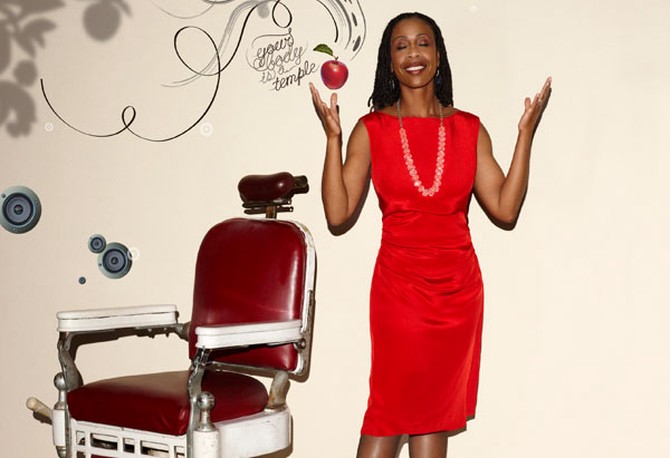You Don't Need to Be an Artist to Have Imagination
Four people whose knack for innovation has helped them make astonishing things.
Carla Boutin-Foster: The Listener
Carla Boutin-Foster, MD, had hit a wall. In the spring of 2007, she was leading a weekly series of safe-sex talks with middle school girls in Brooklyn. But the students kept leaving to "use the bathroom"—and not coming back. After week three,the doctor had an idea: Follow them.
"I found the girls in the cafeteria, listening to rap songs about drugs and sex," she recalls. For the next class, Boutin-Foster brought a stereo. "I asked them, 'When 50 Cent says, Find me in da club, bottle full of bub...I'm into having sex, I ain't into making love—what can that lead to?'" The girls were suddenly interested. They talked about safe sex and STDs, behavior and consequences. The conversation led to a pilot program to teach disease prevention through rap at an East Harlem school.
Boutin-Foster, 42, is the director of the Comprehensive Center of Excellence in Disparities Research and Community Engagement (CEDREC) at Weill Cornell Medical College, which works to improve healthcare in underserved neighborhoods of New York City; in one CEDREC project, a medical van tours barbershops offering free on-site diabetes and blood pressure screenings. The daughter of Haitian immigrants ("Mom would buy secondhand shoes and pin brooches on top—she was creative"), she is fluent not only in hip-hop slang but in the poetry of scripture—which comes in handy when she leads health workshops at churches. "The Bible doesn't say, 'Thou shalt not smoke,' but First Corinthians says, 'I will not be mastered by anything.' So we discuss ways not to be mastered by cigarettes and junk food."
For Boutin-Foster, being creative means being receptive. "It's about listening and following and finding a common language," she says. "And sometimes it helps to hit a wall."
—Kimberly Hiss
"I found the girls in the cafeteria, listening to rap songs about drugs and sex," she recalls. For the next class, Boutin-Foster brought a stereo. "I asked them, 'When 50 Cent says, Find me in da club, bottle full of bub...I'm into having sex, I ain't into making love—what can that lead to?'" The girls were suddenly interested. They talked about safe sex and STDs, behavior and consequences. The conversation led to a pilot program to teach disease prevention through rap at an East Harlem school.
Boutin-Foster, 42, is the director of the Comprehensive Center of Excellence in Disparities Research and Community Engagement (CEDREC) at Weill Cornell Medical College, which works to improve healthcare in underserved neighborhoods of New York City; in one CEDREC project, a medical van tours barbershops offering free on-site diabetes and blood pressure screenings. The daughter of Haitian immigrants ("Mom would buy secondhand shoes and pin brooches on top—she was creative"), she is fluent not only in hip-hop slang but in the poetry of scripture—which comes in handy when she leads health workshops at churches. "The Bible doesn't say, 'Thou shalt not smoke,' but First Corinthians says, 'I will not be mastered by anything.' So we discuss ways not to be mastered by cigarettes and junk food."
For Boutin-Foster, being creative means being receptive. "It's about listening and following and finding a common language," she says. "And sometimes it helps to hit a wall."
—Kimberly Hiss
From the February 2011 issue of O, The Oprah Magazine


